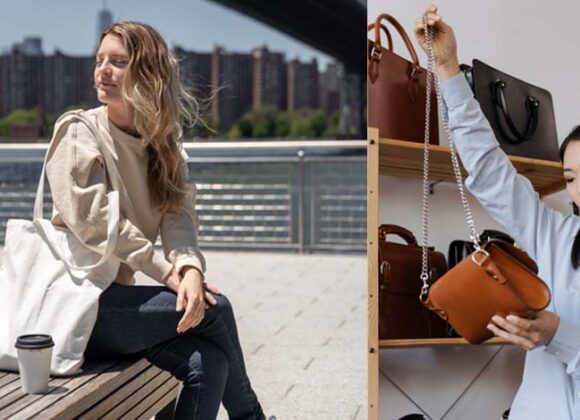Portugal, with its fascinating history, beautiful landscapes, and vibrant culture, offers a unique fusion of modern and traditional fashion. Whether you’re planning a romantic getaway in Lisbon, a cultural exploration in Porto, or a beach holiday in the Algarve, the clothing you pack will be a crucial part of your experience. From the relaxed vibe of the coastal towns to the sophisticated style of Lisbon, there are plenty of options to choose from when deciding what to wear in Portugal. This guide will cover everything you need to know about clothing in Portugal, from the weather to the best clothing stores and traditional attire.
- Understanding Portugal’s Climate and What to Pack
The first consideration when planning what to wear in Portugal is the climate. However, because the country has diverse landscapes, the climate can vary greatly from region to region. Here’s a breakdown of the weather by season and recommendations on what clothing to pack:
• Spring (March to May):
Spring in Portugal is mild and pleasant. In Lisbon, temperatures range from 10°C (50°F) in the mornings to around 18°C (64°F) in the afternoons. While the days are sunny, it’s still advisable to carry a light jacket, as the evenings can get chilly. Opt for comfortable shoes for walking and a sun hat to protect yourself from the occasional sunny spells.
• Summer (June to August):
Summer in Portugal can be extremely hot, especially in the southern parts like the Algarve, with temperatures regularly exceeding 30°C (86°F). In Lisbon, the heat can be intense, and it’s important to dress in light, breathable fabrics like cotton and linen. T-shirts, dresses, shorts, and skirts are all suitable for the daytime.
• Fall (September to November):
The fall season in Portugal is still quite warm, particularly in the southern regions, but the northern areas start to experience cooler temperatures. Lisbon averages temperatures of around 20°C (68°F) during the day, which gradually drops in the evening. During this time, you can switch from summer attire to more layered clothing. Light jackets, sweaters, and scarves are practical choices. If you’re exploring rural areas or hiking, consider packing sturdy shoes and a rain jacket, as occasional showers are common.
• Winter (December to February):
Portugal’s winters are relatively mild, but temperatures in the northern regions and in inland areas can drop significantly. In Lisbon, temperatures rarely go below 5°C (41°F), but it can feel colder due to the wind. A heavier jacket or coat is necessary during this season, especially if you’re traveling to Porto or the countryside. Bring a scarf, gloves, and boots to stay warm, particularly for trips to the mountains or areas with rain. Portugal’s coastal areas have mild winters, so a good waterproof jacket and a pair of comfortable shoes for rainy days will be ideal. - Traditional Clothing in Portugal: A Glimpse Into the Country’s Heritage
Portugal’s fashion is a beautiful blend of modern European styles and its rich cultural heritage. Traditional clothing in Portugal offers insight into the country’s long history, regional customs, and agricultural past. These traditional garments are often worn during special events, festivals, and celebrations, though they aren’t commonly seen in everyday life. Here’s a closer look at some of the most iconic traditional Portuguese attire:
• The Portuguese Kimono (Fado Dress): One of the most iconic traditional garments worn by women in Portugal is the Fado dress. This striking attire is typically seen during Fado performances, which are deeply rooted in Portuguese culture. The Fado dress is elegant, with intricate lace and embroidery, and often comes in black, which is associated with the melancholic nature of Fado music. These dresses are worn by female performers during live shows and festivals.
It’s a reminder of the agricultural roots of Portuguese culture.
• Azulejos-Inspired Clothing: Portugal’s iconic Azulejos (decorative ceramic tiles) are famous for their vibrant blue and white patterns. These patterns have inspired not only the country’s architecture but also its fashion. Many modern clothing items, such as scarves, blouses, and even dresses, feature Azulejos designs, combining the beauty of traditional art with contemporary fashion.
• Portuguese Folk Costumes: In the northern regions of Portugal, especially in Minho, you may find women wearing traditional folk costumes during festivals and celebrations.
While you may not see these garments worn daily in Portugal, they are an essential part of the country’s heritage, and if you’re lucky enough to witness a local festival or cultural event, you might get a chance to admire these traditional outfits firsthand. For those interested in traditional Portuguese clothing, they make for excellent souvenirs and unique additions to any wardrobe. - Clothing Stores in Lisbon: Where to Find Fashionable Clothing
Lisbon, the capital of Portugal, is a haven for fashion lovers, with a wide variety of clothing stores offering everything from contemporary international brands to Portuguese-designed apparel. Whether you’re looking for high-end fashion, traditional Portuguese clothing, or something unique, Lisbon’s shopping districts have something for everyone. Here are some of the best places to explore clothing stores in Lisbon:
• Chiado District: Located in the heart of Lisbon, the Chiado district is home to a blend of high-end boutiques and local stores. This area is the place to go if you want to shop for luxury brands like Prada, Gucci, and Louis Vuitton, as well as more affordable stores offering contemporary fashion. Many of the shops in Chiado focus on local designers, offering stylish pieces that reflect Lisbon’s cosmopolitan vibe.
• Avenida da Liberdade: Known as Lisbon’s luxury shopping street, Avenida da Liberdade boasts designer stores, including Chanel, Dolce & Gabbana, and Burberry. If you’re looking for upscale clothing and accessories, this is the place to be. The area is also home to several international brands, making it a great location for shopping if you’re looking for the latest trends in both Portuguese and global fashion.
• Rua Augusta: Rua Augusta is one of Lisbon’s busiest shopping streets, filled with shops that offer everything from casual wear to more formal attire. Here you’ll find high-street brands like Zara, H&M, and Massimo Dutti, as well as a mix of Portuguese brands. This pedestrianized area is perfect for a leisurely shopping stroll, and there’s something for everyone in the family.
• Portuguese Clothing Brands: Lisbon is home to several popular Portuguese clothing brands that focus on high-quality, stylish, and locally made fashion. Brands like Lanidor, Sacoor Brothers, and Seaside offer a variety of fashionable options, from casual wear to formal attire. Many of these brands emphasize sustainability and quality craftsmanship, ensuring you get a durable and stylish piece that reflects Portuguese fashion traditions.
• Design Shops and Boutiques: If you prefer one-of-a-kind, artisan-made items, Lisbon offers a variety of boutique stores that specialize in handmade clothing and accessories. These shops often carry limited-edition collections created by local designers, making them an excellent option for unique fashion pieces. From bohemian-style garments to contemporary dresses, these boutiques provide an alternative shopping experience. - Cloth Shopping in Portugal: Unique Finds and Local Markets
While Lisbon’s shopping districts and clothing stores are fantastic, cloth shopping in Portugal also offers a different experience if you venture beyond the typical retail outlets. Local markets, vintage shops, and artisanal boutiques are fantastic places to pick up high-quality textiles, unique clothing, and even traditional Portuguese garments. Here are some tips for shopping for clothes in Portugal:
• Feira da Ladra (Lisbon’s Flea Market): Feira da Ladra is one of Lisbon’s oldest and most famous flea markets, held every Tuesday and Saturday in the Alfama district. This market is a treasure trove for vintage clothing, antiques, and rare finds. It’s a fantastic place to search for unique pieces like retro dresses, vintage leather jackets, and locally made accessories. The market also features stalls selling traditional Portuguese textiles, perfect for those seeking authentic souvenirs.
• Portuguese Textiles: Portugal is renowned for its fine textiles, including wool, linen, and cork fabric. You can find local stores that specialize in selling these traditional textiles, which are perfect for making clothes or home décor items. Look for stores that carry traditional Portuguese linen and woolen items like scarves, blankets, and tablecloths, which make excellent gifts or keepsakes.
• Sustainability in Fashion: Many Portuguese clothing designers focus on sustainability, using eco-friendly materials and ethical production methods. If you’re interested in supporting local artisans and environmentally conscious brands, look for clothing stores and boutiques that specialize in sustainable fashion. These stores not only offer stylish clothing but also ensure that you’re making a positive impact on the environment. - Shopping Tips for Clothing in Portugal
• Size Differences: Keep in mind that European sizing can differ from what you’re used to, so always try clothing on before purchasing to ensure the correct fit.
• Quality: Portugal is known for producing high-quality clothing and textiles, so expect well-crafted garments. If you’re purchasing items from local designers or boutiques, you’re likely getting unique, durable, and high-quality pieces.
• Souvenir Shopping: Don’t forget to pick up traditional Portuguese garments and accessories. Azulejos-patterned scarves, handmade jewellery, and woollen items make great souvenirs.
• Bargaining: In flea markets and some local stores, bargaining is acceptable. Don’t be afraid to haggle for a better price, especially in markets like Feira da Ladra.
Conclusion
Portugal’s fashion scene offers a perfect blend of modernity and tradition. From the fashionable streets of Lisbon to the quaint boutiques in Porto, there’s no shortage of clothing options for travellers looking to embrace the country’s unique style. Understanding the local climate and traditional attire will help you make the best packing decisions for your trip. When shopping for clothes, whether in high-end stores or local markets, be sure to explore the various clothing styles and textiles that make Portugal such a special destination for fashion lovers.




